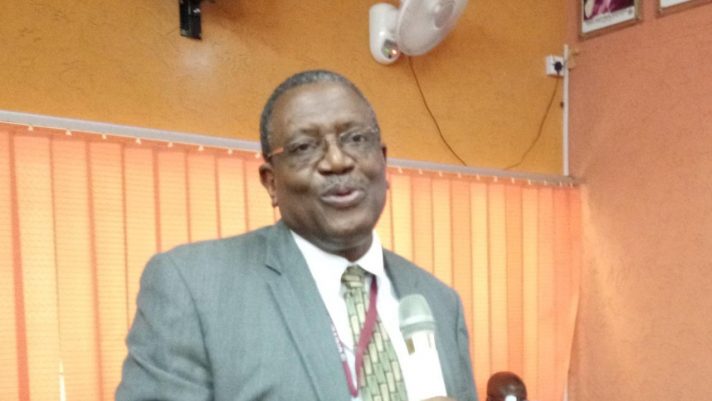Amid growing impact of climate change, stakeholders have advocated the need to control population growth in Lagos to limit threats posed by climate change.
Lagos State Deputy Governor, Dr. Obafemi Hamzat, led the call at a lecture to mark the 70th birthday and retirement of Prof. Babajide Alo, at the University of Lagos. Alo is a renowned environmental management expert and professor of chemistry at the university.
The gathering attracted the Oniru of Iru Kingdom, Oba Abdulwasiu Omogbolahan Lawal, Vice-chancellor, UNILAG, Prof. Oluwatoyin Ogundipe, Head, Department of Chemistry, Prof. Olayinka Asekun and Dean, Faculty of Science, Prof. Elijah Oyeyemi, among others.
Specifically, the Deputy Governor, in a lecture, ‘The Role and Perspective of Government in Resolving Current Issues on Global Environmental challenges,’ said environmental issues, global warming, deforestation, carbon dioxide (CO2) emissions, plastic pollution and flooding are caused by human actions, which trigger climate change and constitute threat to humanity.
He said Lagos state, in the last 10 to 14 years, had taken climate change seriously by putting together numerous policy frameworks and adopting global best practices to shape government’s response to climate change challenges.
According to him, as the world population increases, the earth does not and this further renders the society helpless as human activities devastate climate change.
He said efforts are on at reducing carbon footprint by adopting a compact city plan, adding that government is also establishing six air quality monitoring stations.
He said there was a deployment of decentralised renewable energy installations such as solar photo-voltaic systems in schools, hospitals and municipal buildings.
Hamzat said: “We are aware that as a highly vulnerable coastal state with a rapidly growing population, we must act fast to protect its fragile ecosystems and populations in low-lying areas. Guided by the climate change scenarios and the target of achieving net-zero carbon emission by 2050, we identified a series of climate action plans in the energy sector respectively.”
He disclosed that government plans to expand the Bus Rapid Transit (BRT) network, deploy low-emission buses and provide vehicles to BRT traffic edge.The monarch said the inadequate support by citizens could hamper environmental policies from achieving its desired effects in the country.
He harped on cooperation of people in protecting the environment, stressing that government alone couldn’t do it as they rely on the citizen’s support in protecting the environment.
He canvassed reduction of carbon emissions and substances that emit carbon into the atmosphere.
Lawal decried traffic congestion in Lagos State, saying it results in C02 emission, which is harmful to the society and advocated compact city planning, to enable government tackle environmental crises.
Ogundipe commended the celebrant for his service to the university, saying that he was part of those that sustained the institution’s reputed brand.Speaking at the forum, Alo advised government to deepen the domestication of relevant training, research and development as well as improve local content drive in all sectors of the economy.
He said: “There is need to strengthen multi-disciplinary research in our universities, for excellence in research and innovation efforts towards achieving access to more international grants.”

